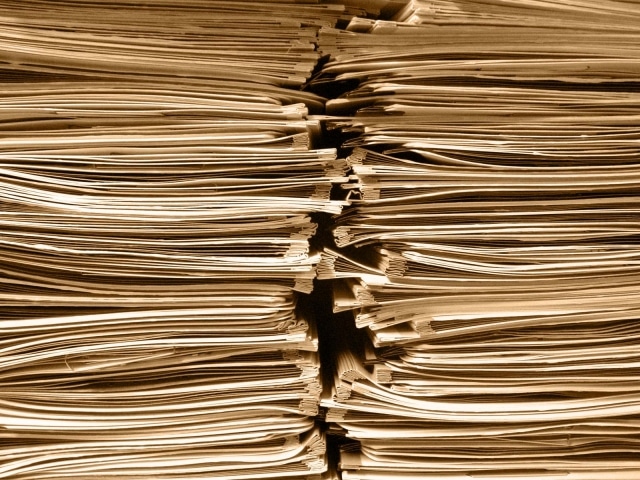TWO leading groups representing thousands of scientists across Australia are asking for changes to the country’s Freedom of Information (FOI) laws to better protect climate change scientists from abuse and from deliberate attempts by climate sceptics to unfairly discredit them.
FOI laws are being used to “target and attempt to discredit individual scientists”, say the influential groups, with some applications under the laws resulting in climate researchers being subjected to abuse and harassment.
Some scientists are cutting back on their use of email, a vital tool for scientific collaboration, as a result.
The Australian Meteorological and Oceanographic Society, the leading professional association for meteorologists, oceanographers and climate scientists, and Science and Technology Australia, which represents the interests of 68,000 scientists and technologists, have outlined their concerns in a joint submission to the Attorney General’s Department, which is currently carrying out a review of the Federal FOI laws. The submission says:
It is our view that laws which are intended to give greater transparency to government, in practice, are most often used to target and attempt to discredit individual scientists, at both senior and junior levels. We do not believe it was the intent of the Government for FOI laws to be used in such a way. It has become commonplace for climate scientists involved with scientific findings which draw attention from the climate sceptic community to be subjected to FOI applications.
In particular, the submission says that emails obtained by FOI are then subjected to “selective quotation” to try and portray climate scientists “in the worst possible light”.
Blair Trewin, president of AMOS, told DeSmogBlog: “We know that from particularly the international experience that what happens with these FOI requests is that they often ask for scientists’ emails and then on occasions these are then selectively quoted from and then plastered all over the internet.”
The submission says that it has become commonplace for climate scientists to “be subjected to abusive, harassing or threatening correspondence following the publication of such material” and that FOI requests are often a trigger for the attacks.
The submission adds:
Being the recipient of abusive correspondence, and in some cases abuse in the public arena as well, has been a highly stressful experience for many scientists, with some perceiving a significant threat to their personal safety or wellbeing, and we believe that it has the potential to deter talented individuals from entering, or remaining in, science. A number of scientists have also reported to us that they have become less willing to use email because of the perceived risks, which inhibits the collaboration (especially international collaboration) which is important to many areas of scientific research.
Trewin also told DeSmogBlog that one young Australian scientist had reported to him that they had considered “leaving the field” of climate science altogether after being subjected to abuse which was triggered by an FOI request.
Earlier this month on DeSmogBlog, I wrote about several specific FOI requests which have targeted the emails of Australian academics researching climate change issues.
In Australia, Federal government departments and agencies, which include the Bureau of Meteorology and the CSIRO, fall under the federal FOI laws which are currently under review.
Australian states also have their own FOI laws which cover universities and state government agencies and departments.
AMOS and Science and Technology Australia are proposing changes to the federal laws to reduce the potential for impacts on scientists.
Their proposals include introducing a cap on the amount of time an agency can spend processing a request “as a deterrent to large-scale ‘fishing expeditions’.”
In a separate submission to the Federal review, the Office of the Australian Information Commissioner, which oversees the country’s Federal FOI laws, is also proposing a 40-hour cap on time spent by agencies in processing single FOI applications.
AMOS says the potential for FOI applications to lead to harassment or impacts on a scientists’ mental health could also be considered as grounds for refusal.
Subscribe to our newsletter
Stay up to date with DeSmog news and alerts







